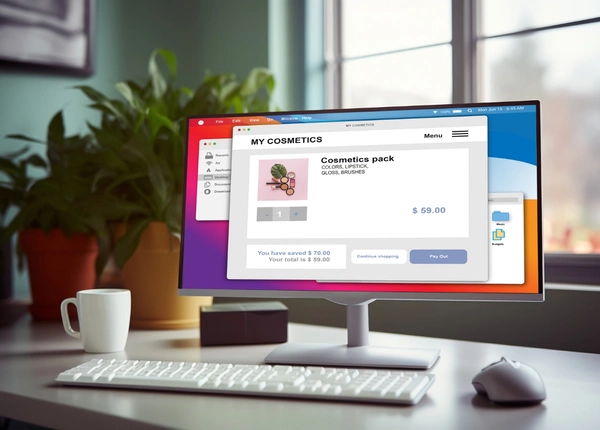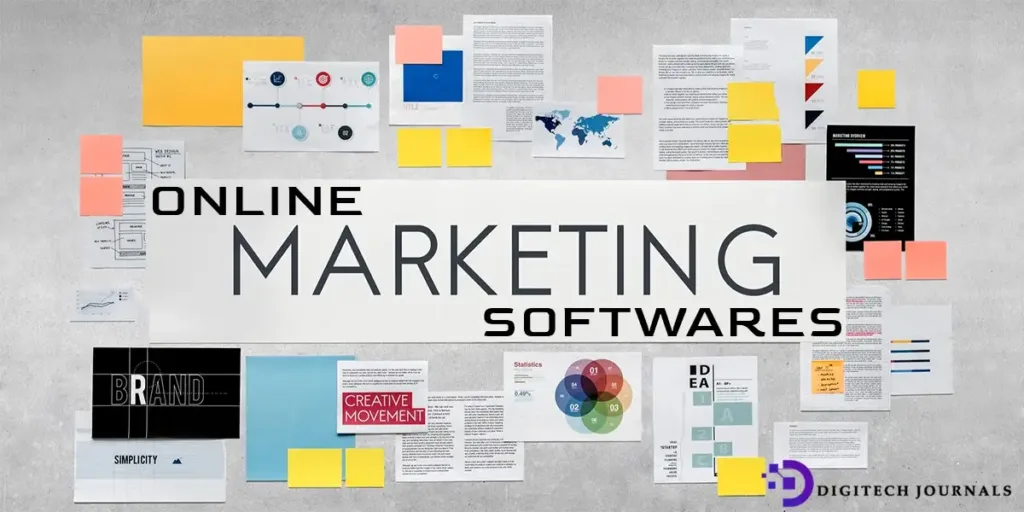In the ever-evolving world of e-commerce, digital marketing has become the cornerstone of success. Effectively promoting your online store is not just an option; it’s a necessity. In this comprehensive guide, we will explore various digital marketing strategies that can take your e-commerce marketing business to new heights.
Optimize Your Product Page Copy
The product pages on your e-commerce website are your digital storefronts. To make them more appealing to both users and search engines, optimize your product page copy:

- Keyword Integration: Incorporate relevant keywords naturally in product descriptions and titles. Focus on low-competition, high-volume keywords to stand out.
- Unique and Engaging Content: Ensure that your product descriptions are unique, informative, and engaging. Describe each product’s features, benefits, and unique selling points.
- Clear Call-to-Action: Encourage visitors to take action with a clear and compelling call-to-action (CTA) such as “Buy Now,” “Learn More,” or “Add to Cart.”
- Mobile Optimization: Ensure your product pages are mobile-friendly. A seamless mobile shopping experience is crucial in the age of mobile shopping.
Write Relevant Blog Posts
Blogs are not just for information; they are powerful marketing tools. Create relevant blog posts that cater to your audience’s needs.

- Keyword-Rich Content: Incorporate relevant keywords in your blog posts. Low-competition, high-volume keywords can attract more organic traffic.
- Educational Content: Offer valuable information, how-to guides, and insights related to your products. Educating your audience builds trust.
- Consistency: Publish blog posts regularly. Consistency not only keeps your audience engaged but also helps with SEO rankings.
- Shareability: Make your blog posts shareable on social media. Encourage your readers to share valuable content with their networks.
Create Guest Posts for External Websites
Expand your reach by writing guest posts for external websites within your industry:

- Relevant Websites: Identify websites that align with your niche and target audience. Contact them for guest posting opportunities.
- Authority Building: Writing for reputable websites can establish you as an authority in your field, improving your brand’s credibility.
- Backlinks: Guest posts often allow you to include backlinks to your e-commerce site, driving traffic and enhancing your SEO.
- Diversify Content: By writing for various platforms, you can diversify your content and reach new audiences.
Put Product-Related Videos on YouTube
For e-commerce marketing companies, video marketing is an effective technique. Consider creating product-related videos and sharing them on YouTube.

- Product Demonstrations: Showcase your products in action: highlight features, benefits, and real-life use cases.
- How-to Guides: Create how-to videos related to your products. Educate your audience and build trust.
- Optimize for SEO: Use low-competition, high-volume keywords in video titles, descriptions, and tags to improve discoverability.
- Engage with Viewers: Respond to comments and engage with your YouTube community. This interaction builds a loyal following.
Include a Keyword-Driven FAQ Section on Your Website
An FAQ section is an often overlooked gem for digital marketing.
- Keyword Integration: Incorporate low-competition, high-volume keywords into your FAQ answers to increase your site’s visibility in search results.
- Customer Assistance: Provide clear and concise answers to common questions. This improves the user experience and builds trust.
- Structured Data: Use structured data markup to help search engines understand your FAQ section better, potentially leading to rich snippets in search results.
- Continual Updates: Regularly update your FAQ section to address new customer queries and stay current with evolving trends.
Post-Purchase Follow-Up
Your digital marketing efforts don’t end when a customer makes a purchase. Post-purchase follow-up is critical.
- Thank-You Emails: Send personalized thank-you emails after a purchase, expressing gratitude and providing contact information for support.
- Request Reviews: Encourage customers to leave reviews. Good reviews help you establish credibility and entice new clients to buy.
- Cross-Selling: Suggest related products or accessories that complement the customer’s recent purchase.
- Feedback Loop: Use post-purchase communication to gather feedback, which can inform improvements to your products and services.
The Abandoned Shopping Cart
Addressing the issue of abandoned shopping carts is a key element of e-commerce marketing.
- Remarketing: Use remarketing campaigns to target users who abandoned their carts. Remind them of the items they left behind.
- Incentives: Offer incentives, such as discounts or free shipping, to encourage customers to complete their purchases.
- Simplified Checkout: Streamline your checkout process to reduce friction and make it as straightforward as possible.
- Exit-Intent Pop-ups: Implement exit-intent pop-ups to capture customer email addresses before they leave, allowing for follow-up communication.
Conclusion
Digital marketing is the driving force behind successful e-commerce marketing businesses. By optimizing your product pages, creating engaging blog content, writing guest posts, producing product-related videos, incorporating keyword-driven FAQs, practising post-purchase follow-up, and addressing abandoned carts, you can significantly enhance your e-commerce marketing efforts. Stay consistent, adapt to changing trends, and continually refine your digital marketing strategy to thrive in the competitive e-commerce landscape.
Remember, the world of digital marketing is dynamic, so be prepared to adapt and innovate as new opportunities and trends emerge.
This article provides a roadmap for effective digital marketing in the e-commerce marketing sector. It’s a landscape where staying ahead of the curve can lead to substantial success.
FAQs
Why is mobile optimization crucial for e-commerce product pages?
Mobile optimization ensures that your product pages are accessible and user-friendly on mobile devices, catering to the growing number of mobile shoppers.
How can e-commerce businesses use video marketing effectively?
E-commerce businesses can create product-related videos to demonstrate products, provide how-to guides, and engage with their audience on platforms like YouTube.
What is the significance of a post-purchase follow-up strategy?
Post-purchase follow-up enhances customer satisfaction, encourages reviews, and provides opportunities for cross-selling and feedback collection.
How can I address the issue of abandoned shopping carts effectively?
Implement remarketing, offer incentives, streamline the checkout process, and use exit-intent pop-ups to reduce abandoned shopping carts and recover lost sales.



